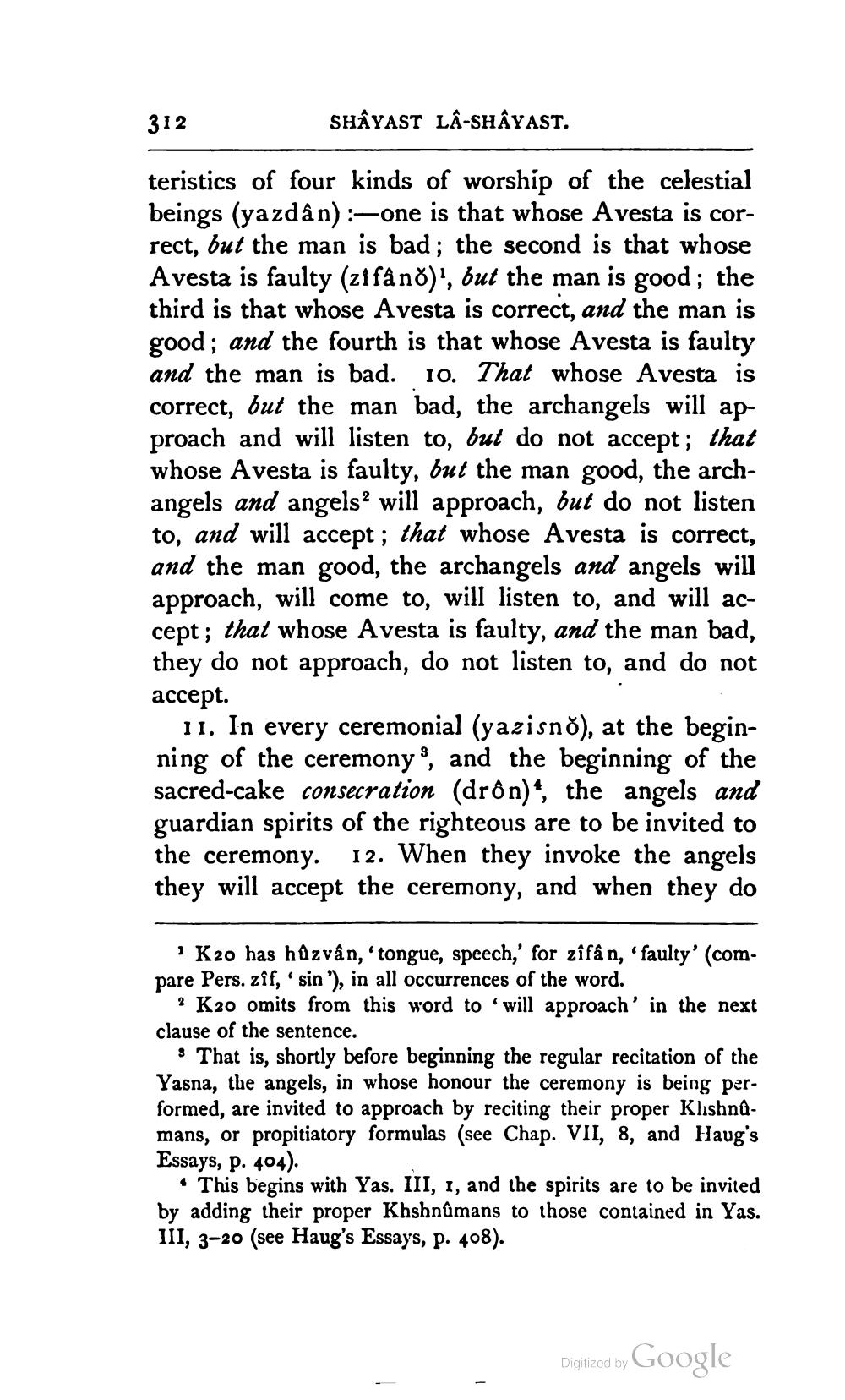________________
312
shậYAST LÂ-SHAYAST.
teristics of four kinds of worship of the celestial beings (yazdân) :-one is that whose Avesta is correct, but the man is bad; the second is that whose Avesta is faulty (zifång)', but the man is good; the third is that whose Avesta is correct, and the man is good; and the fourth is that whose Avesta is faulty and the man is bad. 10. That whose Avesta is correct, but the man bad, the archangels will approach and will listen to, but do not accept; that whose Avesta is faulty, but the man good, the archangels and angels? will approach, but do not listen to, and will accept; that whose Avesta is correct, and the man good, the archangels and angels will approach, will come to, will listen to, and will accept; that whose Avesta is faulty, and the man bad, they do not approach, do not listen to, and do not accept.
11. In every ceremonial (yazisno), at the beginning of the ceremony S, and the beginning of the sacred-cake consecration (drôn)*, the angels and guardian spirits of the righteous are to be invited to the ceremony. 12. When they invoke the angels they will accept the ceremony, and when they do
K20 has hûzvân, tongue, speech,' for zîfân, 'faulty' (compare Pers. zif, sin '), in all occurrences of the word.
? K20 omits from this word to will approach' in the next clause of the sentence.
s That is, shortly before beginning the regular recitation of the Yasna, the angels, in whose honour the ceremony is being performed, are invited to approach by reciting their proper Klishnumans, or propitiatory formulas (see Chap. VII, 8, and Haug's Essays, p. 404).
• This begins with Yas. III, 1, and the spirits are to be invited by adding their proper Khshnümans to those contained in Yas. III, 3–20 (see Haug's Essays, p. 408).
Digitized by Google




